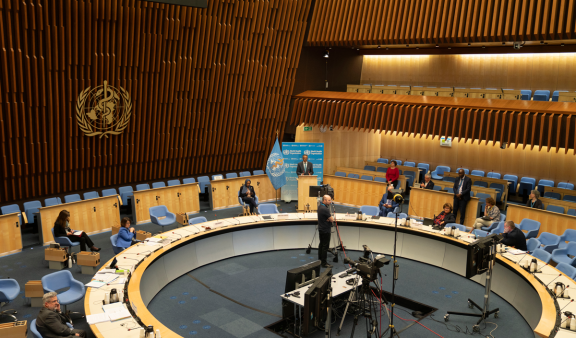Exciting news: FDI’s response to WHO’s draft global oral health action plan makes an impact
In-depth analysis reveals impact of FDI’s consolidated response on WHO's draft Global Oral Health Action Plan (2023–2030).

Following a public consultation process between August–September 2022, the World Health Organization (WHO) has published the updated draft Global Oral Health Action Plan (2023 – 2030) ahead of the 152nd Session of WHO’s Executive Board (EB152). The Action Plan is one of the resulting mechanisms of the landmark Oral Health Resolution adopted at the 74th session of the World Health Assembly in May 2021. It proposes solutions to strengthen national leadership, enhance oral disease prevention, improve oral health workforce capabilities, and scale research.
The draft action plan aligns with FDI's roadmap – Vision 2030: Delivering Optimal Oral Health for All and other urgent civil societies’ priorities. FDI led a consultation with its stakeholders, including its members, Council, Committees, Task Teams, partners, and other organizations, to ensure a comprehensive and consolidated response. Following a detailed analysis of the updated Action Plan against the key asks and recommendations in FDI’s joint response, it is exciting to report that the revised version incorporates many of the suggestions proposed.
Ambitious targets and more inclusive language to ensure no one is left behind
It is promising to see that WHO’s revised Action Plan proposes a more prominent leadership role for oral health professionals, including in national oral health policy development and implementation. Moreover, it calls on governments to ensure “80% of the global population is entitled to essential oral health care services” to achieve Universal Health Coverage (UHC) for oral health by 2030. These amendments are aligned with FDI’s Vision 2030 and several recommendations proposed in its submission.
Additionally, the revised Action Plan includes more concrete commitments on Noma, including through research and guideline development. It also recommends prioritizing support for low-and-middle-income countries and the meaningful engagement of communities and relevant stakeholders.
Oral disease prevention and the life-course approach are mainstreamed through multiple strategic objectives. These are important commitments in the context of “leaving no one behind”.
A robust monitoring framework for tracking progress and a call to action
The WHO Global Oral Health Action Plan also includes a monitoring framework to track progress, which consists of 11 core indicators for global monitoring and reporting towards the 11 global targets and 29 complementary indicators. These can be selected and used by countries to monitor specific actions at the national level. Although the draft published in August 2022 consisted of 11 core and 30 complementary indicators, the current indicators remain robust and will better enhance accountability on oral health.
Paragraph 39 of the Action Plan states that “Annually, WHO will report back to the World Health Assembly on progress and results of the Global Oral Health Action Plan as part of the consolidated report on NCDs, in accordance with paragraph 3(e) of decision WHA72(11). Every three years (starting in 2024), WHO will submit a comprehensive report on progress on implementing the Global Oral Health Action Plan, including collation of data on the core indicators and progress achieved towards the global targets”.
Timely and continuous reporting to the World Health Assembly on oral health will provide opportunities to identify and address persistent gaps, share best-practices, and maintain the current momentum.
How should FDI and its members respond to the revised Action Plan?
In September 2023, Heads of States and Governments will participate at the 2nd United Nations High-level meeting on Universal Health Coverage (UN HLM on UHC). The revised Action Plan proposes actions to integrate oral health in the UHC and noncommunicable diseases (NCDs) agendas at the country level, and rightly so.
FDI will participate at EB152 from January 30–February 7, 2023, and contribute to discussions on NCDs, UHC, social determinants of health, and infection prevention and control. FDI will spotlight the revised Action Plan and reporting timeline due in 2024 in its debates. FDI will also urge WHO Member States to prioritize oral health as part of efforts to achieve UHC and the forthcoming UN HLM on UHC. Afterall, “Universal Health Coverage cannot be universal without oral health”.
A new WHO UHC Global Roadmap for the UN HLM on UHC notes that “multistakeholder leadership and action is needed for the progressive realization of UHC and Health for All”. National Dental Associations (NDAs) must work with their governments to develop robust national monitoring frameworks for oral health based on the revised Action Plan and encourage their participation in the proposed reporting processes to WHA starting in 2024 and at the High-Level Meeting on UHC in September 2023. FDI stands ready to support NDAs in these endeavours.
